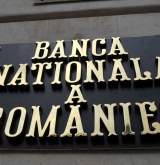“The bid offer spread - that is, the difference between what owners are requesting and buyers are willing to pay - has contracted, but remains sufficiently large that transactions limited”, Troy Javaher told Wall-Street.
As for investors’ approach, they took a different view in relation to particular countries in the CEE in first quarter. The German funds who remained active in CEE continued to dig for high-quality real estates with focus on Poland and Czech Republic.
“We believe that this is a short-term situation and the interest in Hungary and Romania will be increase, but pricing in these two countries will first need to be adjusted to attract the more core-level investors”, JLL’s analyst said.
The upgrade of the country risk jars investors
The only deal completed in first quarter was the acquisition of Fabian investment fund by Dinu Patriciu, a portfolio acquisition that is not allowing an individual evaluation of the real estates’ yield, as Blake Horsely, Investment Sales at Colliers International noted.
The underlying causes of the investment flow weakening was the increase of country risk as seen by investment funds, who now seek to minimize risks, the exit of German funds, liquidity shortage and increase of costs for those who have access to cash.
Real estate investment market in CEE: 220 million euro in Q1
In Central and Eastern Europe, the accumulated turnover of real estate investments sank in Q1 2009 by roughly 60%, real estate advisor CBRE|Eurisko found.
“Investment volume of Q1 2009 indicates that CEE market is headed to the early decay levels, before the region experienced a significant increase in turnover for real estate investments in 2005-2007”,CBRE|Eurisko research found.
The lion’s share of the Q1 investment activity was recorded in Russia and Czech Republic.
“Office segment remained the most difficult real estate category to trade in CEE in first quarter. Similarly, there was no deal consummated in industrial real estate segment and only four deals in retail compared to first quarter 2008, when more than 500 mln euros were invested in retail properties in the region”, reads the report.
Citeste si:
Calculator Salariu: Află câți bani primești în mână în funcție de salariul brut »
Te-ar putea interesa și:


















































































![HR [PLAY] Tech Workout - 11...](https://www.wall-street.ro/image_thumbs/thumbs/973/973fe0a3888d417feff63de42e814180-260x260-00-65.jpg?v=1714174187)









